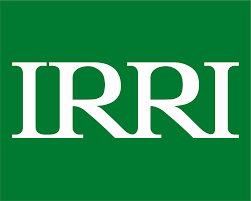Deadline: 13 January 2023 ( the position will remain open until filled)
The International Rice Research Institute (IRRI) is looking for a Senior Scientist I - Environment / Crop Modeler to develop and lead IRRI’s research-for-development (R4D) program on environment, crop and greenhouse gas modeling to address the challenges of climate change. This position will be based at the IRRI Headquarters, Los Baños, Philippines and is open for international applications.
Climate Change impacts rice production through exacerbated and more frequent climate extremes, rising sea levels and temperatures. Understanding future trends is crucial to plan ahead and implement adaptation options to increase resilience of agricultural systems. Working with various national and international partners in different projects, IRRI develops strategies to mitigate climate change (effects) and to adapt to climate change, e.g., through the development and dissemination of climate-smart technologies in rice production.
I. Roles and Responsibilities
- Develop and Lead (scientific and managerial) of a world-class modeling team at IRRI on climate- smart mitigation and adaptation R&D on rice, and resource mobilization to support such a program; position this team as international leadership on rice and modelling
- Integrate the computer simulation model of carbon and nitrogen biogeochemistry in agro-ecosystems DNDC (DeNitrification-DeComposition) with the deterministic, ecophysiological ORYZA model which simulates growth and development of rice including water, C, and N balances
- Plan and conduct of new (field) experiments that generate new insights in the processes of methanogenesis in rice fields; develop and implement data collection protocols for model calibration and validation; and capture these new insights in improved routines and algorithms in the ORYZA-DNDC model
- Apply the integrated ORYZA-DNDC model to explore novel crop-soil-water-residue management options -including the application of methane inhibitors and soil amendments – to sequester carbon and reduce GHG (and especially methane) emissions from rice fields under various environmental and agro-ecological conditions; Link to GIS and remote sensing and generate impact maps
- Apply the integrated ORYZA-DNDC model to support rice carbon credit schemes, and contribute to the acceptance of this model as approved CDM methodology
- Lead IRRI’s modelling team in global programs and initiatives such as AgMIP and OneCGIAR
- Contribute to integrated project teams at IRRI on climate-smart mitigation and adaptation R&D on rice
- Contribute to international communities of practice on GHG and agricultural modeling
- Develop relevant strategic partnerships (ranging from advanced research institutes to NARES partners) knowledge sharing, and capacity development of partners and stakeholders
- Develop successful grant proposals
- Supervise and mentoring junior staff
- Demonstrate scientific leadership through publications and representing IRRI in scientific and strategy forums
- World-class R4D agenda on model-based development and delivery of climate-smart mitigation and adaptation solutions in rice-based ecologies
- A well-functioning and effective R4D team based on principles of mutual trust and respect for gender and inclusion
- Globally accepted leadership role on rice and rice-GHG modeling
- Effective resource mobilization and a well-funded portfolio of R4D projects
- A well-documented integrated ORYZA-DNDC model (potentially including SimRoot), which includes updated subroutines and algorithms that capture increased understanding of the processes of rice methanogenesis
- A well-functioning rice crop-GHG simulation architecture according to the latest insights in model and programming environments
- Simulation and prediction studies of rice growth and development and associated GHG emissions and carbon sequestration under a range of management options under current and future climates in different rice ecosystems/ecologies
II. Requirements
- PhD in agricultural, environmental (climate change) sciences, with at least 10 years post-PhD experience
- Excellent programming skills in Fortran and other computer languages used in agro-ecological modelling
- Proven experience in the programming and application of both the DNDC and ORYZA models
- Excellent understanding of the physiological and chemical processes of crop growth, soil organic matter formation, methanogenesis, agro-ecology, and crop-climate interactions
- Experience with rice
- Have a feeling for field experimentation to collect data for calibration and validation of DNDC and ORYZA
- Excellent interpersonal and organizational skills, be a good team player;
- Proficiency in written and spoken English
- Experience with working for both public and private sector partners; experience in working in private-sector funded projects
III. Benefits
IRRI offers a highly extensive employee benefits package inclusive of globally-covered medical insurance, retirement plan, life and accident insurance and other allowances. Join our team and be part of our story!
IV. How To Apply?
- To Apply, Please click HERE
- Please note only shortlisted candidates will be contacted.This position will remain open until filled.
- IRRI is an Equal Opportunity Employer that values diversity. Women and minorities are encouraged to apply.
V. About IRRI
The International Rice Research Institute (IRRI) is dedicated to reducing poverty and hunger through rice science; improving the health and welfare of rice farmers and consumers; and protecting the rice-growing environment for future generations. IRRI is an independent, nonprofit, research and educational institute, founded in 1960 by the Ford and Rockefeller foundations with support from the Philippine government. The institute, headquartered in Los Baños, Philippines, has offices in 17 rice-growing countries in Asia and Africa, and over 1,000 staff.
Working with in-country partners, IRRI develops advanced rice varieties that yield more grain and better withstand pests and disease as well as flooding, drought, and other harmful effects of climate change.
